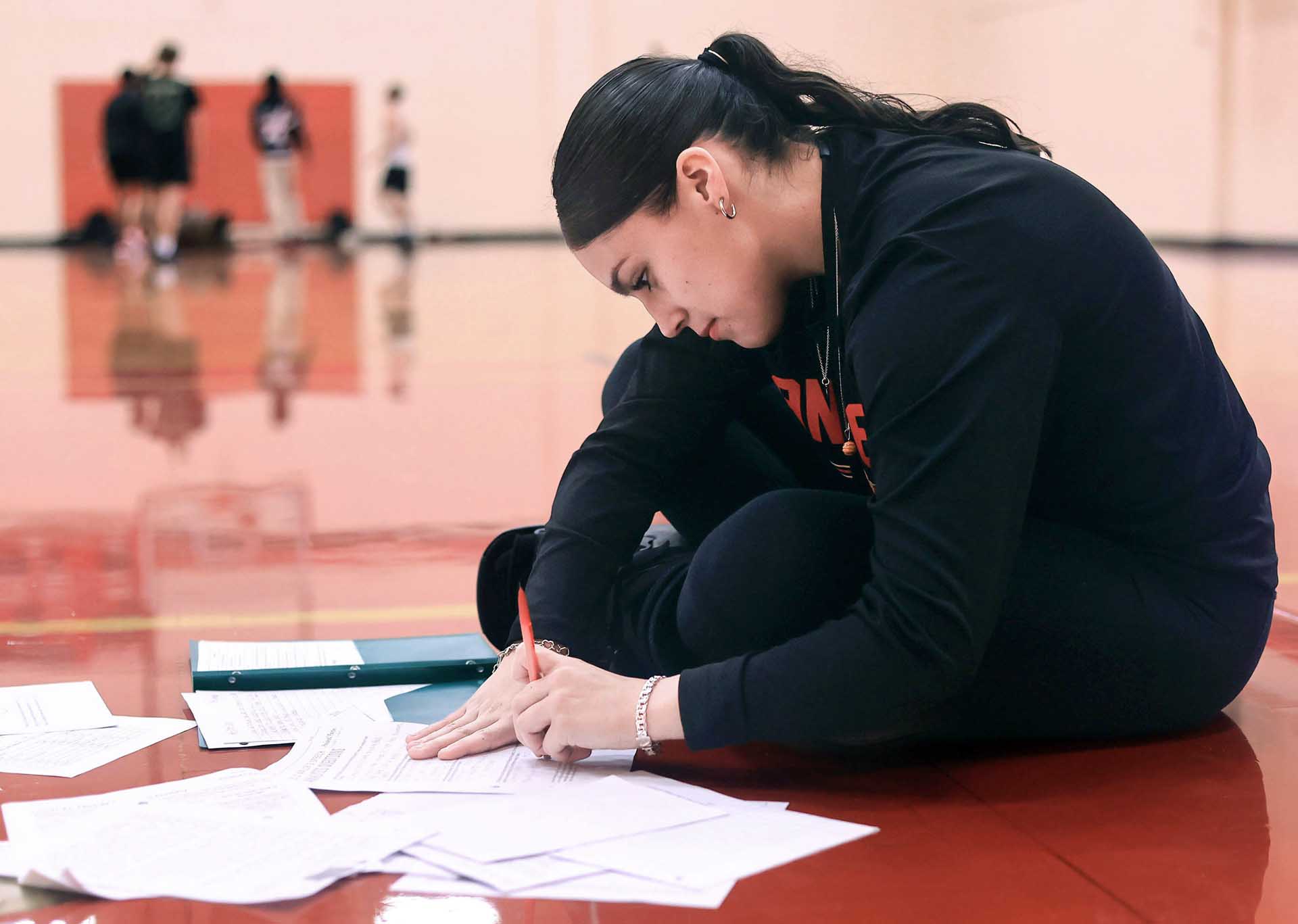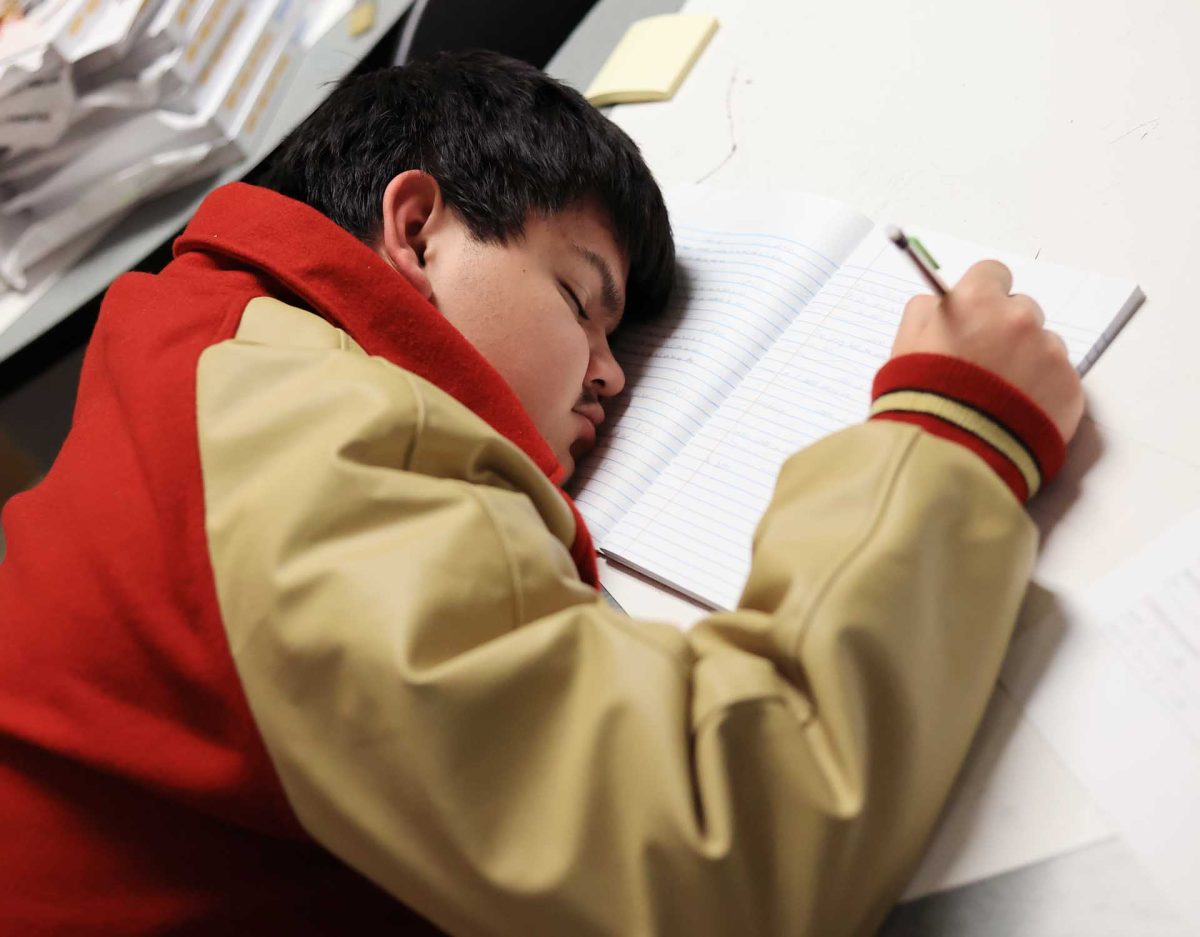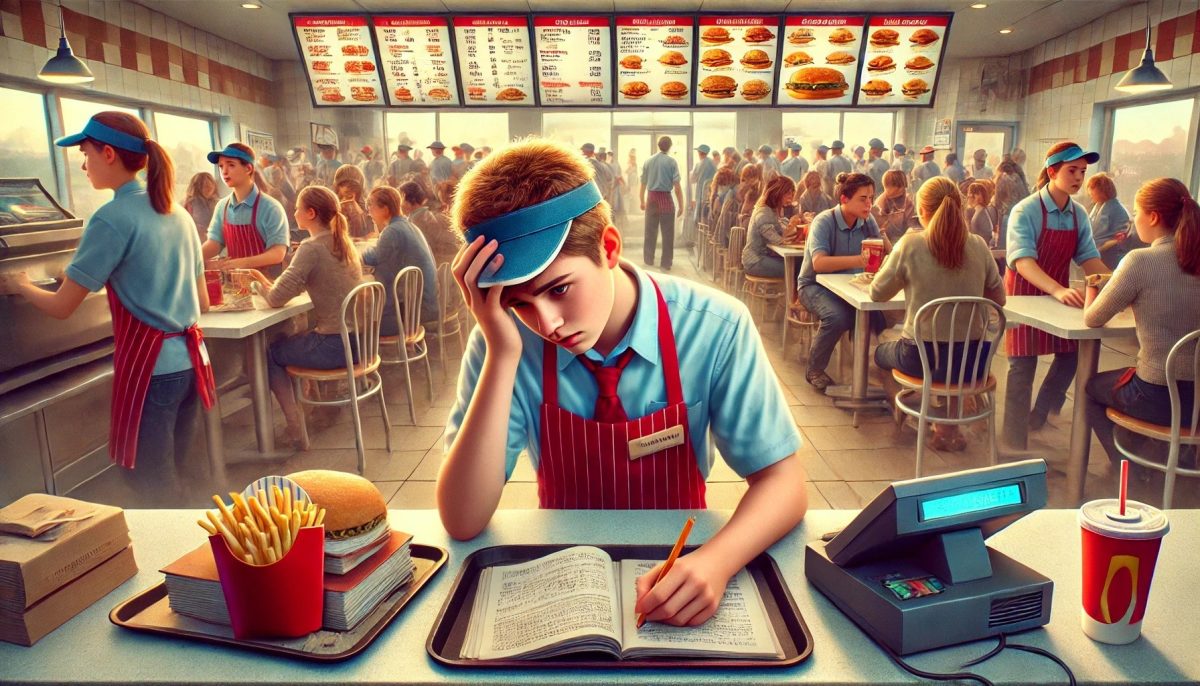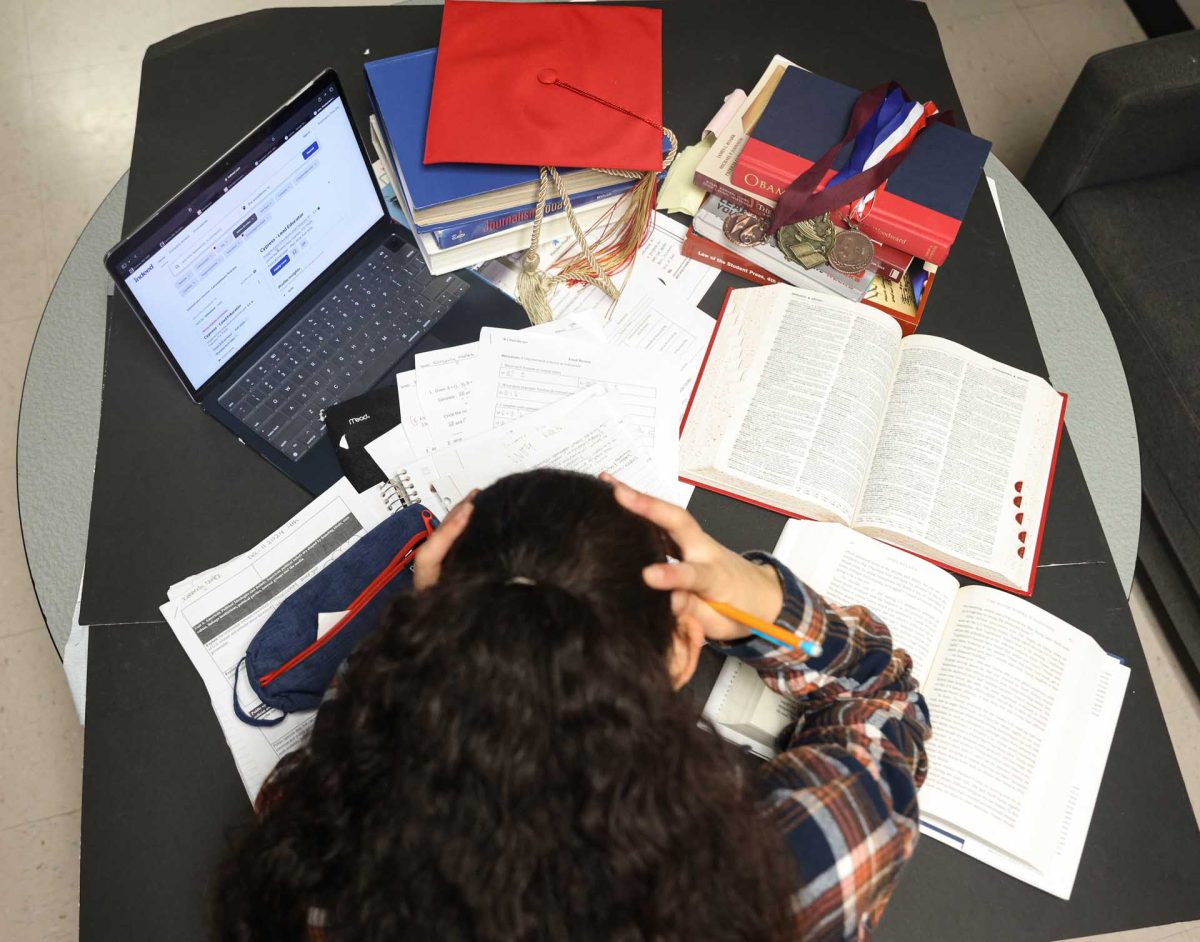Advisory time demand is most commonly heard from honor students and high work ethic students that need more in-school time to complete work. Despite this, these students do not correlate their demand with self burnout, according to the Student Media Burnout Report.
The report suggests that removing advisory did not have a tie to overall burnout. However, approximately 91% of students agreed in needing more time to do school work.
Principal Dr. Terri Benson said that in the future, advisory could return “only if students could come up with a plan that the entire student body should agree to.”
Administrators removed advisory because students skipped their advisory period. This decision was announced in April after receiving complaints from teachers and students about wasted time.
At the same time, administrators saw a jump in discipline during advisory. They reviewed the feedback from both teachers and students, and the campus soon removed the 30-minute, dedicated time for academic work.
Benson said students were using the extra 25 to 30 minutes that they were given in fifth period for the purpose of “treating this (school) like a mall.”
“One of our overall goals is that we do all that we can to support students’ needs both mentally, emotionally and academically,” Benson said. “Teachers were complaining, it was causing conflicts between teachers and students. It seemed like a cycle of negativity that I don’t want to promote.”
Dual Credit government and U.S. history teacher Stephen Murphy noticed that during advisory time, most of his students didn’t take the time to do their work from other classes. He said that a few students may have been negatively impacted by the change, but overall it was for the better.
“I’m not saying a specific one but if you take the overall campus population, they didn’t take it seriously as something to utilize,” Murphy said. “It’s also like you think about during a class, on the days where you give students study time, if you look at the computer of half of the students they’re playing games or doing something else.”
When making the decision to remove advisory, Benson had said, ‘If the students took advantage of the time, it would have been valuable.’
“Teachers were saying that students were not using it for tutorials or for getting homework done and instead they were choosing to skip or sleep,” Benson said. “So, I asked the teachers and the staff ‘Would we prefer to use that time for instruction?’ and the staff and the students were like, “‘I’d rather use that for instruction than just having time that is wasted.'”
For senior Jazmine Zuniga, advisory was a time where she could bring up her grades in other classes and have a moment to relax from the school day.
“I have to do my work in lunch now because they took advisory away, so some of the work from other classes I have to do them during lunch,” Zuniga said. “It gave us a couple of minutes to have a break from school, from between classes.”
Sophomore Christian Barahona works at a car wash right after school. He argues for advisory time to be reinstated in order to do his homework during school time.
“It would help me keep up with assignments,” Barahona said. “During advisory I was able to work on any missing work from past classes or from the week.”
Algebra teacher Julia Revelli said that having advisory time was a positive thing for her but also acknowledged that other teachers disagreed.
“The way that the math works out for lunches we have to have those extra 30 minutes, so I don’t think it was a waste because for me a lot of kids could work on other stuff for classes,” Revelli said.
Honors & Work Ethic
Students who had the biggest push for a form of advisory back were those enrolled in honors courses. However, the results showed that being in honors alone wasn’t enough to be a predictor of wanting more time. The bigger predictor was having strong self-reported work ethic.
About 36% of the survey agreed that they needed time in school to get work done, while the other 54.2% strongly agreed to that as well. 9 out of every 10 students agreed that they needed advisory to do their work, but when students were asked ‘If I wanted to, I would have enough time outside of school to get my academic work complete without sacrificing other responsibilities,’ most said they could.
The report noted that neither being enrolled in an honors course this year nor the number of classes took was related to burnout.
“Students who have ever been in an honors course are 122% more likely to report burnout,” the report notes. “Interestingly, neither being in an honors course this year nor the number of courses they’re in had a statistically significant effect.”
The answer, according to the report, could be due to the amount of homework.
“Every additional class that assigns required homework at least once a week increases burnout risk by 27% and decreases likelihood of sleep by 17%,” the report noted. “Homework has a small, but meaningful effect on grades when looked at alone.
However, students who responded that they used advisory for academic purposes consistently shows a significant positive correlation with grades across models. This, though, is likely not a causal
relationship.”
According to research from the American Psychological Association, advisory periods not only impacts a student positively academically but also negatively when looking at the bigger picture. The study also noted advisory has the ability to have a major impact on the way a student learns by helping them manage their time in school. The environment that they do their work in also affects the way they perform academically in school work.
When factoring in a student’s self-reported work ethic, this dominates the model. In other words, students with higher self-reported grades both want advisory more (37% per increase in grades) but also tend to have a strong self-reported work ethic (232.6% per increase in grades). Additionally, higher grades meant a student was more likely to want more time in school by 38.1% for every increase in self-reported grades. This suggests the students with higher work ethic want more time to do academic work.
Students who reported using advisory for academics reported a 17% increased likelihood for burnout for every step increase (e.g. moving from Agree to Strongly Agree about “I used advisory time for academic purposes last year.”). This means the more likely a student was to use advisory for academics, the more likely they are to be burned out.
For example, irritated Junior Amelia Noguera was bothered by the noise made by her classmates while trying to do her work.
“I have to say that sometimes it is difficult because of all the noise going on making it hard to concentrate … Sometimes big groups of people get together and it gets a little bit annoying,” Noguera said.










